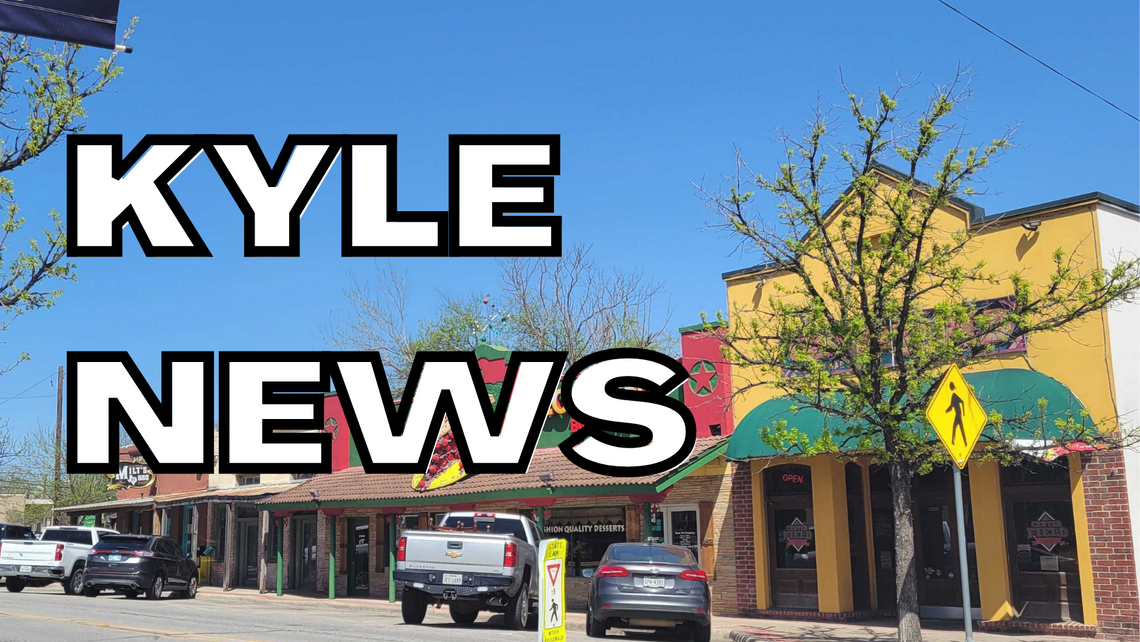By Brittany Anderson
KYLE — The use of city water to fill a 2.75 million gallon water pond at Heroes Memorial Park (HMP), the first phase of Kyle’s Brick and Mortar District, has raised concerns with residents, given the area’s extreme drought conditions.
Acting City Manager Jerry Hendrix said that HMP is designed to be a “fitting tribute” to the contributions and sacrifices of first responders and veterans. Water is a critical element to the functioning and performance of the park; the design centers around several different water features.
According to city staff, the decision to fill the pond was made in May under the direction of City Manager Scott Sellers, who is currently on administrative leave, following discussion to do so. Public works staff was apprised of the decision and directed to fill the pond.
The filling began on June 16 and continued for 45 days, ending on Aug. 1.
In response to an inquiry from the Hays Free Press, Director of Communications Rachel Sonnier relayed information gathered from several city departments.
“In an effort to protect the significant investment the citizens of Kyle had made in HMP and to avoid additional costs and delays for the completion of the project in a forecast that was not promising rain, the decision to supplement the pond with city water was made,” Sonnier said, adding that the pond has “benefited from two large rain events that have contributed significantly to the water in the pond.”
According to the National Weather Service, the Kyle-East station that automatically measures precipitation in the area received 4.05 inches of rain between May 1 and Aug. 7. Additionally, Gov. Greg Abbott issued a drought declaration on July 8.
Sonnier explained that pumping equipment could not be tested or commissioned until there was enough water in the pond to completely cover the intake by at least one to 1.5 feet, and that had the pond not been filled, the contractor would have been delayed, which in turn would have delayed the overall completion of the project and incurred potential extended general condition costs to the city and taxpayers.
Staff considered using other water sources, but they were either not available or too costly; to have water hauled in, the cost to the city would have been $260,415. Instead, the city’s estimated cost to supply water to HMP using city water was calculated to be $3,287.50. The city pays for the water used for all of the city’s parks and facilities, including HMP, which is included in the overhead cost of the water system.
The total water used to supplement HMP is 2.325 million gallons, according to a metered connection. However, staff members maintain that the impact to the water system over that time was extremely minimal and was the “most cost-effective and economical way to fill the pond” in order to keep with the construction plans.
"Staff made the best decision with the available information at the time," Sonnier said. "When the decision was initially made to supplement the HMP pond in June, the city's drought outlook was not at a critical level and the financial impacts to the citizens of Kyle for not being able to fill the pond were significant. After the equipment was tested and the financial impacts became less of an issue, staff made the decision to stop adding water to the HMP."
Citywide, the water system produces between five and seven million gallons per day. On average, residents use around 2.5 million gallons of water daily.
Over the course of the 45 days that the pond was being filled, the city’s total water production was between 450 million gallons and 630 million gallons. City representatives said that the total amount of water used to supplement the pond was less than 0.5% of the city’s total water production during that time.
However, some residents have expressed frustration over the use of city water to fill the pond in light of the announcement of tighter drought conservation regulations.
On July 20, the city informed residents of amendments to the Stage 2 mandatory water use management rules. As of Aug. 3, the city began round-the-clock monitoring. As outlined in ordinance 569 that governs the city’s Drought Plan, residents failure to comply can result in a fine of up to $2,000.
Some of these rules include abiding by various restrictions such as when and how much water residents may use outdoors at certain days or times, and other “housekeeping” rules such as ensuring leaks are repaired and prohibiting run-off from property.
“We are asking all residents to do their part to conserve water at this time,” the city said in a statement. “If the demand on the City of Kyle’s water system does not decrease, even further restrictions will be necessary.”
“It’s unfortunate that we are experiencing historic drought conditions during the construction of this beautiful park, and it is our hope that nature will be able to provide the rain to fill the pond,” Hendrix said. “In the event we are not blessed with rain, city staff will explore all avenues to responsibly supplement the water needed for this project.”











